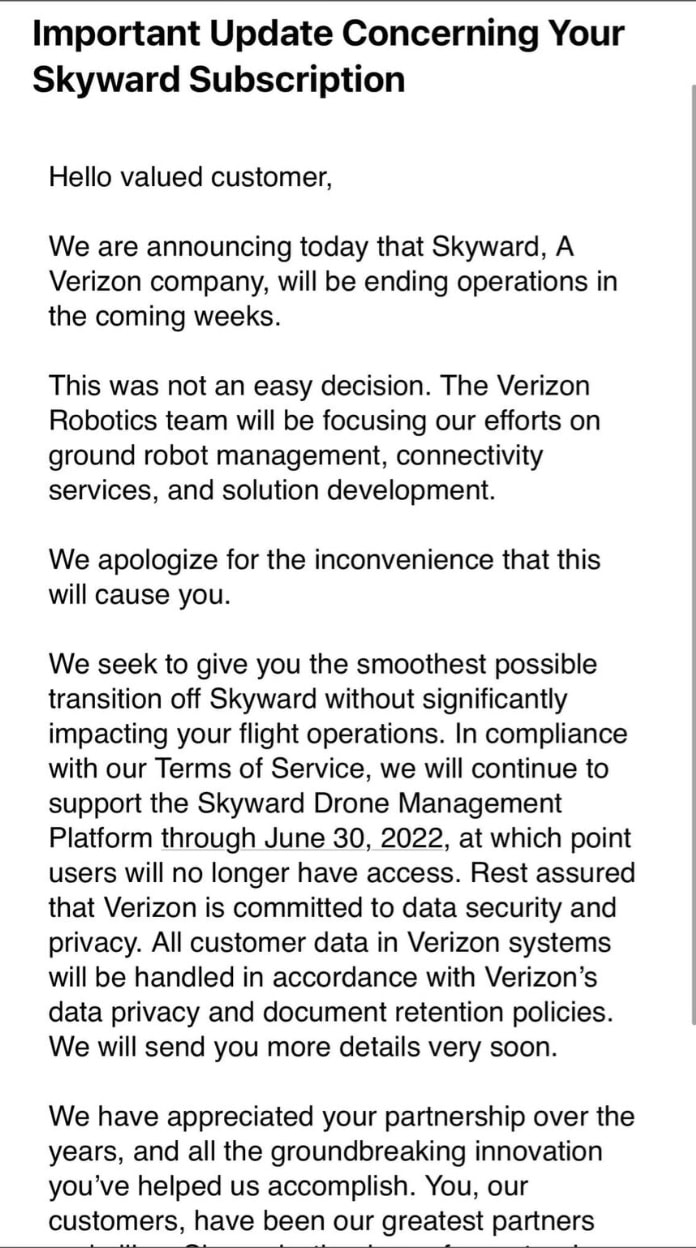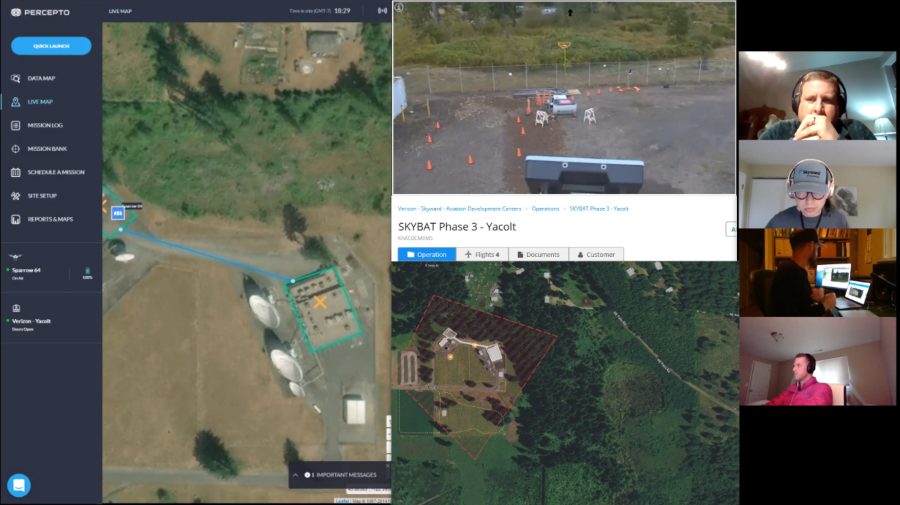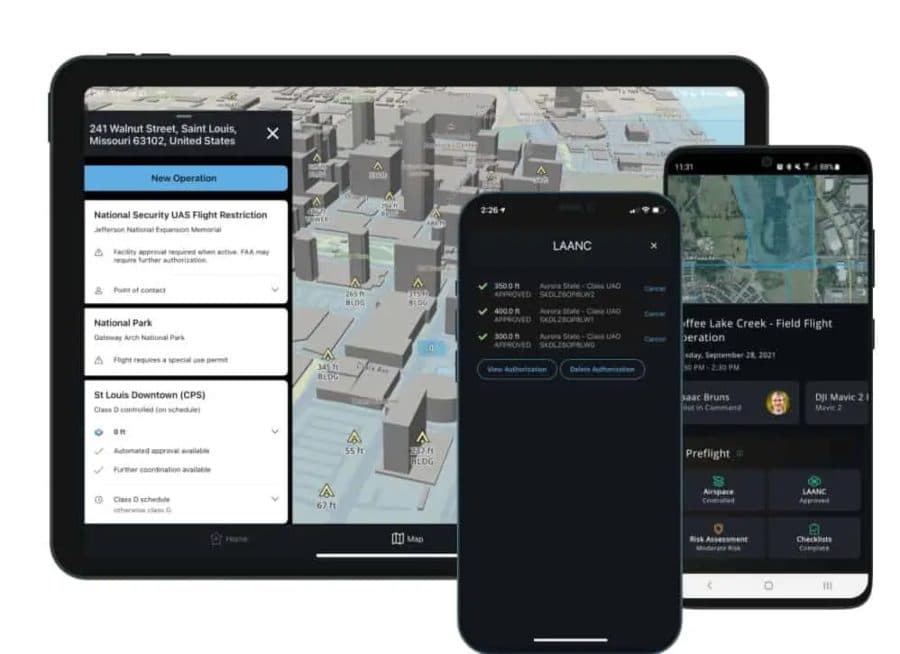Skyward Is Closing—What Does This Mean for LAANC and for Parrot’s ANAFI Ai?
BY Zacc Dukowitz
10 May 2022Skyward recently announced that it will permanently be closing its doors on June 30, 2022.
The news first came out in an email the company sent to its customers:

The announcement came as a surprise to many in the drone industry.
Given that the news was first shared through an email instead of an official statement, lots of speculation flew around the internet at the time, with private chats, forums, and posts to social media full of people wondering what might have happened, and whether the news was true.
The day after the email went out, Skyward confirmed the impending closure. In a statement, Skyward’s parent company Verizon said the reason for closing was “about market agility and ensuring that Verizon continues to focus on areas that provide both near and mid-term growth opportunities,” implying that Skyward didn’t have good prospects for growth.
Why This News Is Surprising—and Disappointing
Skyward launched in 2013 as a drone ops management platform.
In 2017, it was one of the first companies to begin offering LAANC services—that is, the ability to get instant airspace authorizations—when the FAA rolled out this capability. It was also acquired by Verizon that same year, and the acquisition was a drone industry success story, since it was a drone startup getting acquired by a huge telecom company.
Since then, Skyward has only grown in stature in the drone ecosystem.
In 202o, Skyward became the first ever to conduct a remote drone operation without a pilot present. The FAA granted the company temporary permission to use drones remotely during the Big Hollow Wildfire in Washington state in order to inspect Verizon’s critical communications infrastructure during the fire.

Credit: Verizon
The permission for that operation was granted via a Special Governmental Interest waiver, which are often granted to public safety agencies as an addendum to an existing COA, but may also be made for individuals or companies with Part 107 operators.
[Related read: Applying for a Public COA vs. Part 107 Certification for Police and Fire Departments]
Also in 2020, Skyward was selected by the FAA to help establish requirements for Remote ID.
In 2021, Skyward announced a partnership with drone manufacturer Parrot to provide 4G LTE connectivity for its ANAFI Ai. The Ai is the first ever drone that operates on 4G, and it seems like a promising enterprise solution, in part because of its 4G-enabled ability to provide “faster time to insight, redundant command and control.”

Credit: Verizon
We’re listing all of these milestones by way of explaining why the news that Skyward is closing has been such a shock to many in the drone industry.
All of these accomplishments, and the general prominence of Skyward in the industry, have made it a reliable leader—a company you look to when wondering what will come next for commercial drones.
Even competitors have expressed surprise and disappointment about hearing that Skyward plans to close.
Regarding the closure, Joshua Ziering, the Founder and CTO of LAANC service provider Aloft.ai (formerly Kittyhawk), wrote on LinkedIn:
I was extremely disheartened to read about Skyward, a Verizon company, winding down operations yesterday.
Here’s why:“But Josh!!” I can hear you exclaiming, “They’re your sworn enemy in the drone industry. How can you be sad?”
The drone industry needs competition and from that competition, comes innovation. It’s been a challenging year for the drone industry as we’ve seen once-dominant Airmap get acquired by a drone services startup and now Verizon has decided to focus on terrestrial robots.
Skyward users have also taken to the internet to express their feelings about the closure. Some have expressed disappointment over making investments to incorporate Skyward’s software into their drone programs over long periods of time, and the fact that they must now look to new options.
What Does This Mean for LAANC and for the Parrot ANAFI Ai?
Another consideration of the Skyward closure is that it may not be a good sign for LAANC service providers.
Last year, AirMap quietly stopped offering LAANC services—the news came out after people noticed it was no longer on the FAA’s list of LAANC providers. (AirMap has since been acquired by DroneUp, and the company has been added back to the list.)

Credit: Skyward
One implication of Skyward’s closure and AirMap’s temporary outage is that offering LAANC services may cost more than can be brought in through other revenue streams.
When LAANC was first rolled out, some drone pilots expressed concern that the FAA would eventually allow private companies to charge a fee to use a service that should be free. While this fear has proved unfounded—all LAANC services are still free, and it appears they will remain so—the other side of that coin is that it could eventually prove unsustainable for companies to offer these services.
If you’ve watched the show Silicon Valley, you know that many startups operate on the philosophy that acquiring users is all you need to think about. Worrying about revenue can come later. But LAANC services may end up being one instance where that mode of thinking just doesn’t pan out.
Of course, this is all speculative. There are still over a dozen active LAANC service providers, and the FAA is actively recruiting more companies to offer the service. Only time will tell whether these services can be offered for free through private companies.
Another open question with the closing of Skyward is what will happen to the ANAFI Ai’s 4G connectivity, which was supposed to be offered for free from Verizon with the purchase of the drone.
Verizon has yet to issue a statement regarding the Ai and whether Skyward’s closure will have any impact on Verizon’s partnership with Parrot, so that is another question we’ll have to wait to have answered.


